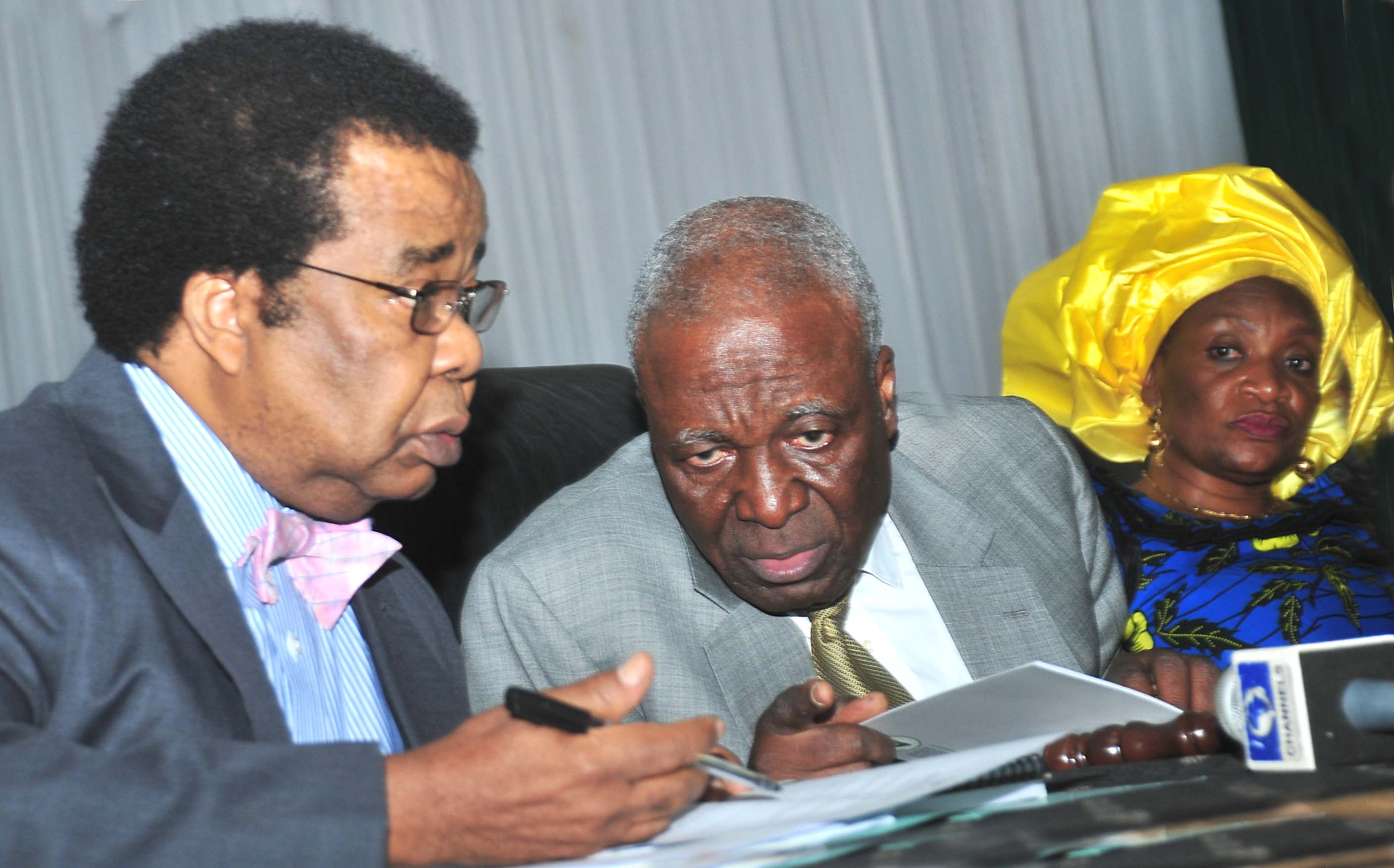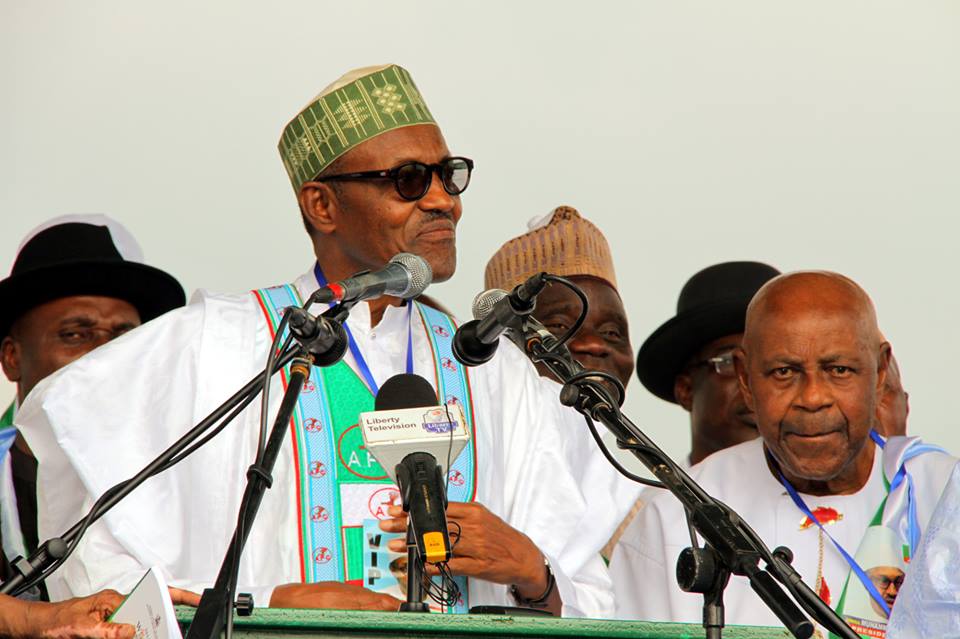It has been exactly 30 years since British superstar, Bob Geldof, led a band of musicians under the banner of Band Aid to draw the attention of the world to the famine ravaging Ethiopia through their hit song – Do They Know It’s Christmas.
The images of kwashiorkor-inflicted children struggling to stay alive in Ethiopian cities sent shivers down the spines of many people. Many saluted the musicians’ initiative to bring awareness to the plight of the poor. And while using their talent to raise millions of dollars in aid of the situation, not a few wondered about what politicians and public officers in Ethiopia, like elsewhere in Africa, were doing to provide the most basic needs of food and shelter to their people.
The message of that touching Christmas song might be directed at the whole of Africa, particularly public officers who paid lip service to fighting the cause of the masses, it is unlikely that Geldof and his television presenter wife, Paula Yates, had Nigeria’s Agriculture Ministers in mind when they were inspired to contribute to the rescue of the famished people of Africa.
The underlying message of that musical intervention, however, should apply to Dr. Akinwumi Adesina, the current Minister of Agriculture and Mallam Adamu Bello who served in that capacity between 2001 and 2007, but who now aim at each other’s jugular over the correct performance indicator of the Agric ministry during their respective tenures. Considering the vociferous manner in which both gentlemen have been tackling each other, it might be apt to ask if they both really know it’s Christmas.
Advertisement
But it is evident that we should care about the bone of contention that has pitched these two knowledgeable men against each other. We should care, because unlike the petroleum and telecommunications sectors whose fortunes are transient, in spite of their current huge returns, the agric sector is regarded as the ideal industry of the future upon which the government should build a lasting economic agenda.
If a country is able to feed its citizens and draw sufficient revenue from export, it would nurse no fears over dwindling crude oil price or the possibility of mobile telephony becoming significantly cheap or even free as satellite technology gradually becomes easier and accessible. This has been the basis upon which the successive administrations have run since 1999. If it then looks like the claims do not meet current reality or the nation is being misled to believing that our projections are being met when in fact they are not, then it is important to interrogate the issues.
It is precisely a call made by Mallam Bello for a probe of the claims of successes being purportedly recorded in the Agric sector that is now generating a huge controversy. It is coming against the backdrop that Dr. Adesina is one of the most celebrated ministers in President Goodluck Jonathan’s cabinet. In December last year when he was named Forbes Africa Person of the Year 2013 for his “reforms in Nigeria’s Agriculture sector and the empowering of more than six million farmers across Nigeria to embrace agriculture as a business,” Adesina became not just a poster boy for this administration but something akin to an ideal public officer.
Advertisement
Subsequently, he has hinged his message on the fact that self-sufficiency is achievable in his time, and that his ministry has succeeded in nipping in the bud decades of corruption and inefficiency stifling growth in the agric sector, particularly in the disbursement of fertilizers.
But those assertions are being called to question now and I am reluctant to accept that Adesina’s defence is convincing enough. In challenging Adesina’s claims, Bello’s raison d’etre might be political – to challenge the penchant of public officers denigrating their predecessors in order to show that their own reforms are better. But Bello’s argument is not a rant; he is deconstructing a myth and he supported his claims with statistical evidence that is verifiable.
“I have decided to put on record the authentic performance of the Agricultural sector of the Nigerian economy from the year 2000 to 2013. I say authentic in the sense that the source is the National Bureau of Statistics (NBS) which is statutorily responsible national economic data jointly with the Central Bank of Nigeria,” Bello says.
It turns out that the growth rate of Gross Domestic product (GDP) for Agricultural sector started picking steadily from 2000 at 2.95%; 4.25% in 2002; 6.50% in 2004 and reaching its peak in 2006 at 7.40%. Decline, however, has set in gradually from 2007 when it dropped to 7.20%; to 5.60% in 2010 and 2011; a sharp drop in 2012 to 3.97% before a slight rise to 4.50% in 2013. The target, according to Bello, in both 2012 and 2013, was 8%.
Advertisement
While he was able to show that the growth rate in Agriculture sector has been on the decline since Olusegun Obasanjo left office as president, the Adesina camp, in its response, could only offer a weak accusation of “cosmetic and fuddled growth statistics, an indication of some tinkering somewhere.”
In a statement by Adesina’s aide, Dr. Olukayode Oyeleye, Bello should not rely only on the NBS statistics. The statement even suggested that ex-Minister’s figures might be manipulated, yet it provided no significant counter-claim. This is a careless argument to make in view of the weighty allegations that his principal may not have been forthright in his claims.
It may be true that the Agric sector under Adesina has attracted about $4m in the last two years. If that claims passes scrutiny test, Bello’s logical contention is that such success pales in significance in its overall impact on the economy when compared to achievements of 2006 and 2007. And in any case, if the Ministry has failed to meet its target in the last two years, why has the Minister not explained his challenges?
It is very curious that Adesina has no defence to the allegation that he exaggerated the fraud claims in the subsidy and distribution of fertilizer. Again, Bello garnished his arguments with facts and figures as well as conviction as one who knew what he was talking about.
Advertisement
It is worth reiterating that good intentions are different from the reality; nor are they sufficient as pass-marks.
Will Bello’s treatise succeed in exposing the inanities of the current administration in the Agricultural sector where the claims of progress do not seem to add up to the reality on ground?
Advertisement
Merry Xmas.
Advertisement
Views expressed by contributors are strictly personal and not of TheCable.
1 comments





Adamu Bello, Ex-Minister of Agric Accused of N14 Billion Fraud in Award of Fertilizer Contract in 2004 (Article by Nnanna Nwafor, Business Day December 24, 2014)
Excerpt of an article published by BusinessDay on December 24, 2014 indicates N14 Billion fraud in award of fertilizer contract by Adamu Bello, ex-minister of Agriculture from 2001 to 2007.
Yet, the ex-minister wishes for Nigerians to believe his dubious statistics that the total budget for the Ministry of Agriculture during his tenure and others was only N26 billion.
If in 2004 alone, there was allegation of N14 billion fraud in the award of fertilizer contract by Mr. Bello, a 40 years average equals N560 billion. Yet, Bello says the total budget was only N26 billion according to his spurious statistics he claimed was from the Budget Office of the Fedeartion.
Nigerians want Bello to explain how he could have awarded fertilizer contract of N14 billion when his budget was allegedly less than N3 billion.
This is what Nwafor and others before him had to say about Adamu Bello who recently tried to rubbish the achievements of President Jonathan’s Agricultural Transformation Agenda by claiming Adesina is lying about the achievements. On Adamu Bello, “The minister is accused of blatant disregard for due process in the award of contracts. A case in point is the N14 billion contract for the supply of fertilizers, which the minister is said to have awarded to his friends and cronies without caring a hoot for civil service procedures. In a petition addressed to President Obasanjo by CFAN, the farmers gave details of how the minister awarded huge tonnes of fertilizers to himself, using three Indian companies as front, while leaving a pittance for indigenous suppliers. The three Indian companies are Fertilizers & Chemicals Limited, Morris Nigeria Limited and Afcott Nigeria Plc,” the magazine alleged.
“In the 2004 wet season, a total of 245,000 metric tonnes of fertilizers contract was awarded by the ministry. The three Indian companies got 62,000 metric tonnes, without recourse to ministerial tenders board, while 84 Nigerian companies were left to scamper over the remaining 183 metric tonnes. The same trend characterised the previous wet season, in 2003,” it further alleged.
There were other alleged acts of indiscretions committed by the former minister in relation to fertilizer distribution and contracts.
For instance, it was alleged that the award process was shrouded in secrecy and destined for the altar of graft from the very beginning. “The tendering process, if it existed, was less than transparent. About 139 companies were said to have signified interest in the 2004 contract worth N14 billion. But there was neither evidence that the contract was advertised, nor was there anything to suggest that a Ministerial Tenders Board ever met on the contracts. The minister was said to have acted as a sole administrator on the contract, leaving his subordinates, including the then minister of state, Bamidele Dada, and other top officers of the Agriculture Ministry in the dark.” Even more worrisome was the allegation that the Indian companies handled the contracts in a shoddy manner.
Merry Christmas